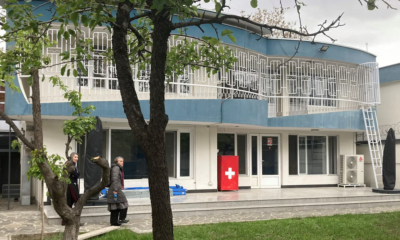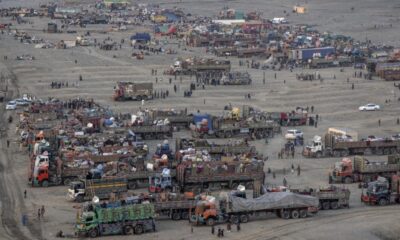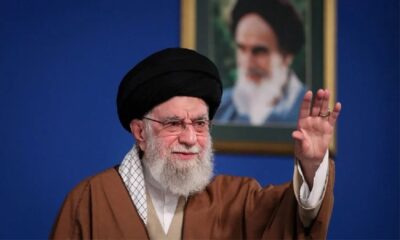Latest News
Afghan migrant makes waves despite being born without arms

Abbas Karimi, a 23-year-old Afghan refugee born without arms is showing the world that determination and perseverance does pay off as he proudly prepares for next year’s Paralympic swimming events in Tokyo.
Speaking to 7News Miami, Karimi described his arduous journey growing up disabled in war-torn Afghanistan, through to being a migrant that fled overland until being settled in the US under the United Nations’ refugee program.
Despite having no arms, Karimi is a swimmer and trains with his coach and mentor Marty Hendrick in Fort Lauderdale six days a week.
Karimi said: “My father used to say, ‘God took your arms from you, but instead, he gives you the talent and skill in your legs and your feet.’”
“Everything was very challenging to do with my feet and learn everything,” Karimi told 7News Miami.
Karimi said his journey to get to this place in his life – as a swimmer training for the 2021 Paralympic games in Japan – has been filled with pain and perseverance.
A victim of bullying back home in Afghanistan, he said he did find something that soothed him – swimming – but eventually, he made the difficult decision to leave home.
“It’s tough to leave your family, your father, your mother at the very young age of 16, but I wanted to get out of that world.”
He first went to Iran before his brother helped smuggle him across the border into neighboring Turkey.
Abbas lived in Turkey as a refugee before being settled in the United States under the United Nations’ refugee program.
Once in the US he first lived and trained in Portland, but moved earlier this year to South Florida where he lives and trains with Hendrick.
“It feels right to be here because I found the right coach,” he said.
Hendrick in turn says he is extremely proud of Karimi and that he trains really hard.
“I feel completely blessed that I have this kid at home,” Hendrick said.
Karimi and Hendrick will travel next summer to Tokyo for the 2021 Paralympic Games, where the swimmer is set to compete in several events.
Latest News
Switzerland re-establishes presence in Kabul with humanitarian office
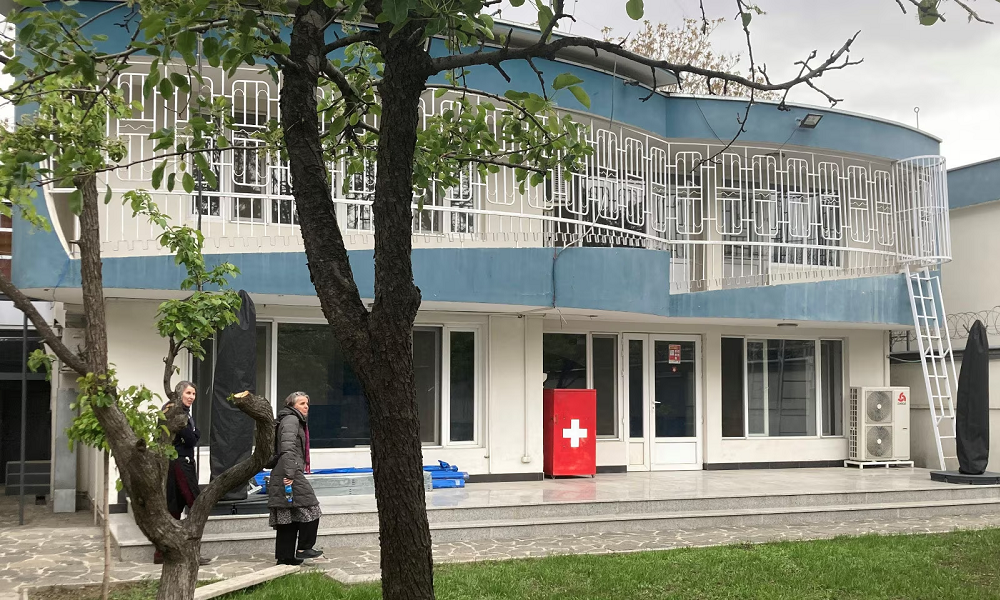
Switzerland’s foreign ministry announced on Monday it re-established its presence in Kabul by opening a humanitarian office to assist Afghanistan’s most vulnerable populations.
The ministry said in a statement that with 24 million people in Afghanistan relying on humanitarian aid and most of the population living below the poverty line, the office aims to provide critical support.
Four specialists from the Swiss Humanitarian Aid Unit (SHA), along with ten local employees, are now working on the ground. Their efforts are focused on ensuring that vulnerable communities receive the necessary resources to meet their basic needs, helping to alleviate the ongoing humanitarian crisis in the country, the statement read.
Since the IEA’s takeover in August 2021, Switzerland closed its cooperation office in Kabul and evacuated all its staff.
According to the statement, initially, the SDC team responsible for Afghanistan continued its programmes from Bern. Since February 2023, it has been operating from the Pakistani capital Islamabad and conducting regular visits to Kabul in order to continue the SDC’s programmes for Afghanistan.
This was a much-needed move in order to better respond to the needs of vulnerable communities in Afghanistan, according to the SDC’s deputy director general and head of its Humanitarian Aid Division, Dominik Stillhart.
Effective support for vulnerable communities requires direct dialogue with the people, efficient coordination between the aid organizations on the ground and a comprehensive understanding of the situation. This applies to all crisis areas where humanitarian aid is needed, not just Afghanistan. SHA members must be in a position to provide a flexible and rapid response to local people’s needs. This can only be achieved with a field presence, said Eric Marclay, who heads the office in Kabul.
Latest News
Pakistan plans to expel 3 million Afghan refugees this year
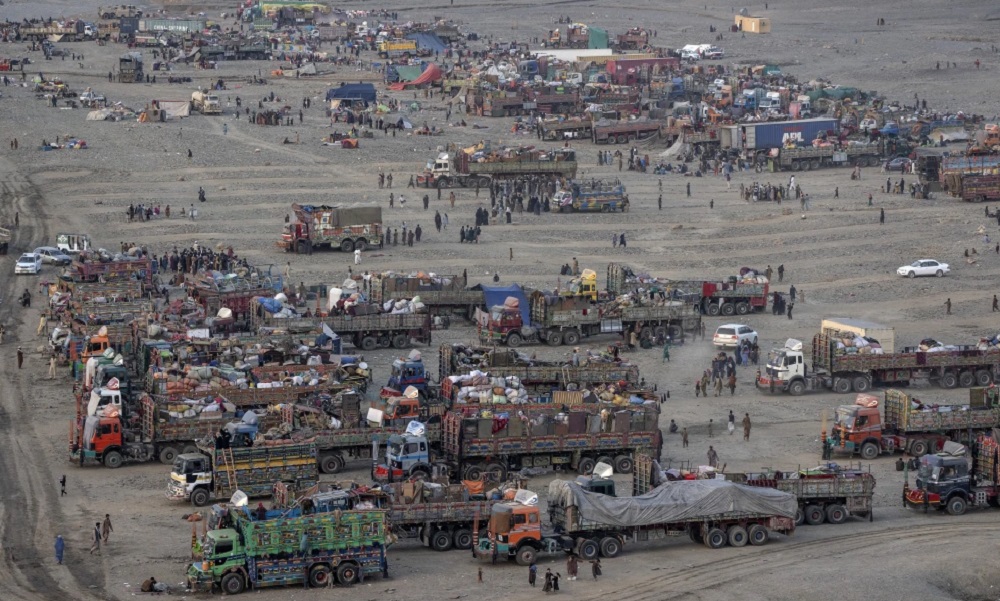
Pakistan plans to expel 3 million Afghans from the country this year, as a deadline for them to voluntarily leave the capital and surrounding areas expired on Monday, The Associated Press reported.
It’s the latest phase of a nationwide crackdown launched in October 2023 to expel foreigners living in Pakistan illegally, mostly Afghans. The campaign has drawn fire from rights groups, the Islamic Emirate, and the U.N.
Arrests and deportations were due to begin April 1 but were pushed back to April 10 because of the Eid al-Fitr holidays marking the end of Ramadan.
About 845,000 Afghans have left Pakistan over the past 18 months, figures from the International Organization for Migration show.
Pakistan says 3 million Afghans remain. Of these, 1,344,584 hold Proof of Registration cards, while 807,402 have Afghan Citizen Cards. There are a further 1 million Afghans who are in the country illegally because they have no paperwork.
Pakistan said it will make sure that Afghans do not return once deported.
Authorities wanted Afghan Citizen cardholders to leave the capital Islamabad and Rawalpindi city by March 31 and return to Afghanistan voluntarily or be deported.
Latest News
Some countries preventing Afghanistan from gaining its seat at the UN

The Islamic Emirate’s spokesperson Zabihullah Mujahid says some Western countries, including the US, are preventing Afghanistan from gaining its seat at the United Nations.
Mujahid added that the US and its allies hold significant influence over the policies of the UN, and due to their defeat in the Afghanistan war, they are attempting to continue wartime policies.
“Some countries that fought against the Afghans for twenty years still have not changed their wartime policies and continue along the same path, which naturally has its effects,” said Mujahid.
He emphasized that the Afghan people have the right to secure this seat, and the IEA will continue to work to obtain it.
He also rejected the notion of Afghanistan being isolated, stating that despite Western pressures, the acting government has expanded its diplomatic relations with regional and global countries.
He stated: “Afghanistan is not isolated; every country naturally faces some challenges with others, but we have extensive regional and international engagements.”
However, experts believe that the UN will not grant Afghanistan’s seat to the IEA until they take concrete steps to meet the international community’s preconditions, such as establishing an inclusive government, ensuring human rights—especially women’s and minority rights—and effectively combating terrorism and narcotics, to satisfy the world.
Despite over three and a half years since the IEA’s takeover, no country has officially recognized the regime.
Meanwhile, many countries have engaged with the IEA and established good diplomatic relations with the caretaker government, which the IEA believes serves as a form of recognition of Afghanistan’s current government.
-

 Latest News4 days ago
Latest News4 days agoAmnesty international urges Pakistan to halt Afghan deportations
-

 Latest News4 days ago
Latest News4 days agoAfghanistan-Iran-Europe railway corridor activated
-

 Business4 days ago
Business4 days agoAfghanistan ships first consignment to Europe via Khaf-Herat railway
-

 Business3 days ago
Business3 days ago36 mining contracts inked over the past year: Mines ministry
-

 Sport4 days ago
Sport4 days agoDe Kock fireworks see Kolkata thrash Rajasthan in IPL
-

 Latest News3 days ago
Latest News3 days agoDried fruit market in Herat booms ahead of Eid-al-Fitr
-

 Regional3 days ago
Regional3 days agoPowerful quake in Southeast Asia kills several, Myanmar declares state of emergency
-

 Latest News3 days ago
Latest News3 days agoUS may ask for military equipment left behind in Afghanistan: Trump



